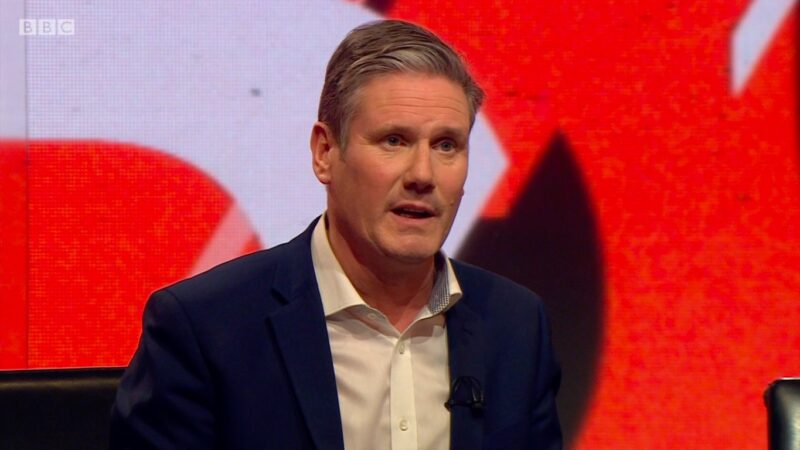
It has been maintained that in formulating a response to the coronavirus pandemic the government has always been simply “following the science”. It only shifted from the herd immunity strategy to the current focus on suppression because the “science changed”, we are told. Sometimes, though, ministers still deny the initial strategy ever existed, even though the government’s chief scientific adviser went on the record saying it did. You can watch that here (particularly from 4:45). But it seems the science did not change: what was taking place in Italy was clear to see, and the prediction of hundreds of thousands of deaths was there from the start.
Emily Maitlis began Newsnight last night with an important speech. It rebutted the idea that people could recover from coronavirus through “fortitude”, as has been said about the Prime Minister, with the unfortunate implication that others have not fought hard enough. She stated firmly that the virus is not “a great leveller”, rightly pointing out that the low paid are more likely to be exposed on the frontline and that those in small flats will find the lockdown tougher. Pre-existing inequalities need to be at the forefront of minds when responding to the pandemic and imposing ‘distancing’ rules. This is, frankly, stating the obvious, yet the inconvenient obvious is ignored most of the time.
This context to Covid-19 needs to be highlighted in the short term to ensure that emergency measures take it into account, and in the long term to build a consensus around basic facts – such as the lowest paid being core to the functioning of our society. There is a debate over how best to do that, however, and Labour leader Keir Starmer is firmly on one side of it. Appearing on ITV’s Peston, he reiterated his call for the publication of a lockdown exit strategy from the government but would go no further. He refused to rule out the idea of joining a Covid coalition government, which is popular among voters according to a YouGov poll. He even said that “where there have been mistakes the government has been able to rectify them”. Is this grown up politics? Or is it letting them off the hook? Would Labour appear inappropriately partisan if it were leading criticisms of the government? Does that matter, if there is a chance that pressure could make a positive difference?
We hope that all readers have the best bank holiday weekend possible in this situation. Remember to stay at home if you can – there are lots of Labour books to read, lots of LabourList content, and there should be junior ministerial appointments announced soon. We’ll be taking a break from the morning email over the long weekend, but will keep bringing you Labour news and comment on the site.
Sign up to LabourList’s morning email for everything Labour, every weekday morning.



More from LabourList
Supreme Court trans ruling: Ban on CLPs and branches backing ‘unlawful position’
‘How we can build a strong political centre and centre-left’
‘Building the UK’s best network: delivering digital opportunity for every community’